Back in March we spoke with R&D Tax Consultant, Michael Sheridan, about his upcoming trip to Sierra Leone for Street Child, a charity that aims to create educational opportunities for some of the most vulnerable children in Africa and Asia. We caught up with Michael when he got back to the UK to discuss the marathon, the people he met out there, and what it was like being there as a traveller.
Talk us through your journey from the UK to Sierra Leone.
I travelled out there by myself, leaving from London via Paris and flew six hours to Freetown, Sierra Leone’s capital. I was lucky enough to meet another Street Child volunteer on my flight, where we chatted about what each other would be doing. Upon my arrival, after the three hour drive to Makeni and an incredible thunderstorm, I was met with a warm welcome by the Street Child team, with whom I stayed during my trip. There were twenty of us altogether – seventeen full time staff and the other three, including myself, were volunteering as photographers and videographers.
Who did you meet out there?
On my first day walking through Makeni, I was approached by a twelve year old boy called Mo who recognised me as working for Street Child, and he offered to show me around his hometown and introduce me to his friends and even began haggling prices for my grocery shop when he spotted I was being ripped off.
As we got to know each other I was shocked to hear that he had lost his dad during the civil war and had lost his mum during the Ebola crisis. Mo was now living with his aunt, who before Street Child intervened, couldn’t afford to put him in school as well as her own children, hence he was spending his time causing mischief in the streets. Street Child was able to step in and help support his aunt to fund his education and ensured she had enough to feed her family.
Mo loved being at school and making friends, and he soon realised the opportunities ahead of him, so he now spends his evenings playing computer games with friends as a way of staying out of trouble on the streets. This was by no means an instant revelation for Mo and it required a bit of tough love from Street Child, but now despite being only 12 years’ old he is certain that he wants to become a lawyer and go to university. For the first time I realised Street child’s impact on these children and the difference they were making.
The turnaround in behaviour from the young boy was touching. He always looked out for me and he looked after the runners at the finish line of the marathon. In particular, one man was being attended to by medics and mentioned that he had left his phone and passport in a bag nearby, to which the boy replied, “Don’t worry, rest, I’m looking after your stuff”. He deflected all of the other kids who were swarming around him and was truly the shining light of what Street Child do and what difference they can make.
I also met many of the Street Child staff including a mixture of those who lived out there and those from the London office. The bonds created by working so intensely as a team for the 10 day trip are hard to fathom when back in London, where we barely speak to new people on a day to day basis. However, there was a real sense of achievement as a team to pull off a successful marathon, which was in large parts down to the bond between the Street Child staff.
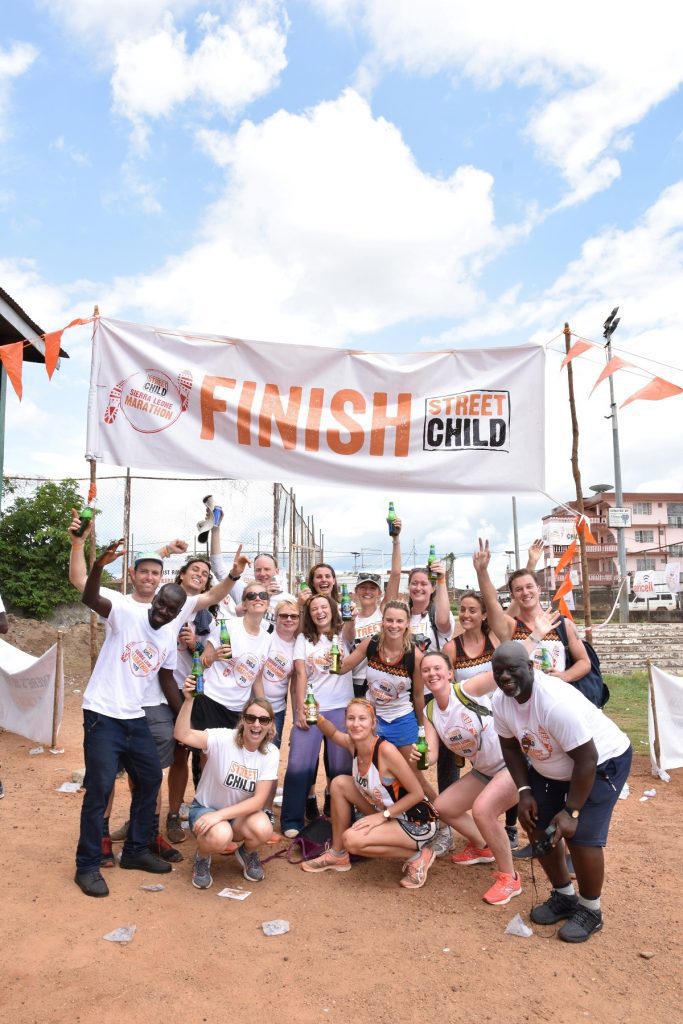
Street Child staff after the marathon. © Michael Sheridan 2019
Talk us through the trip, what was it like being there as traveller?
Initially it was overwhelming as I tried to find my way around. The town itself was particularly underdeveloped with no modern buildings and basic accommodation – taking 40 minutes to walk from one side to the other. I had to walk to the well every morning to collect water and pour a bucket over my head for a shower, as most places didn’t have running water. For food in the mornings, within a minute’s walk, we would buy eggs and bread and attempted to make French toast over a gas hob. But I also indulged in the tasty African foods around the town.
Considering Makeni is not particularly well developed, it was a rather busy place, with a crowded roundabout in the centre which sold food and had a lively market. My favourite moment as traveller was at the end of each working day where I had to travel from the Street Child base to the restaurant to meet the marathon runners every evening. After a long hard day in the heat, I flagged down a motorbike taxi and jumped on the back. It was one of the rare moments of refection I had during the hectic 10 days and the combination of wind in my face, the setting sun and the atmospheric call the prayer echoing out the Mosques’ minarets created a completely unique lasting memory.
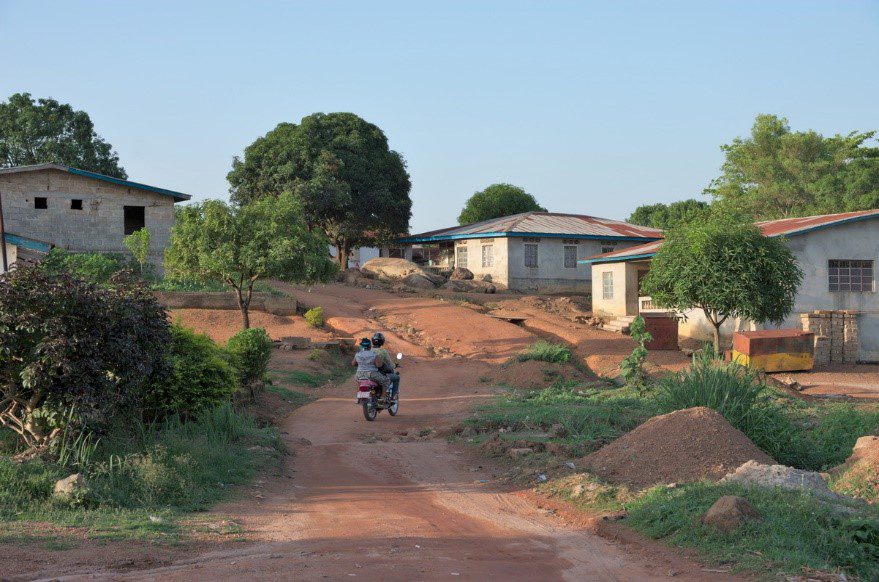
My evening motorbike commute through the local village. © Michael Sheridan 2019
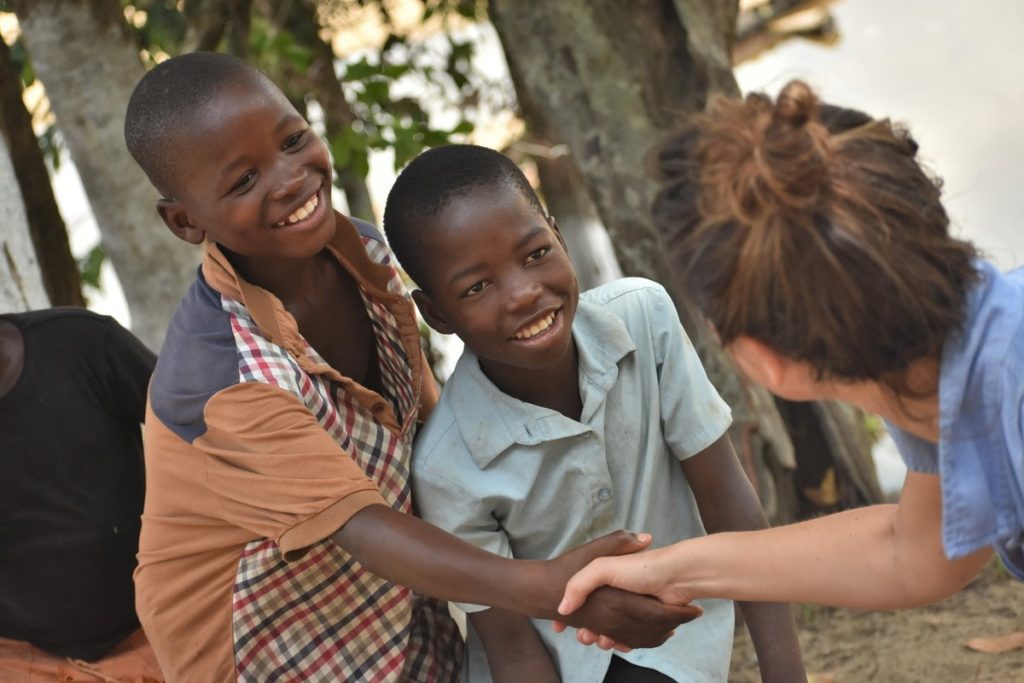
International runners meeting the children of Makeni town. © Michael Sheridan 2019
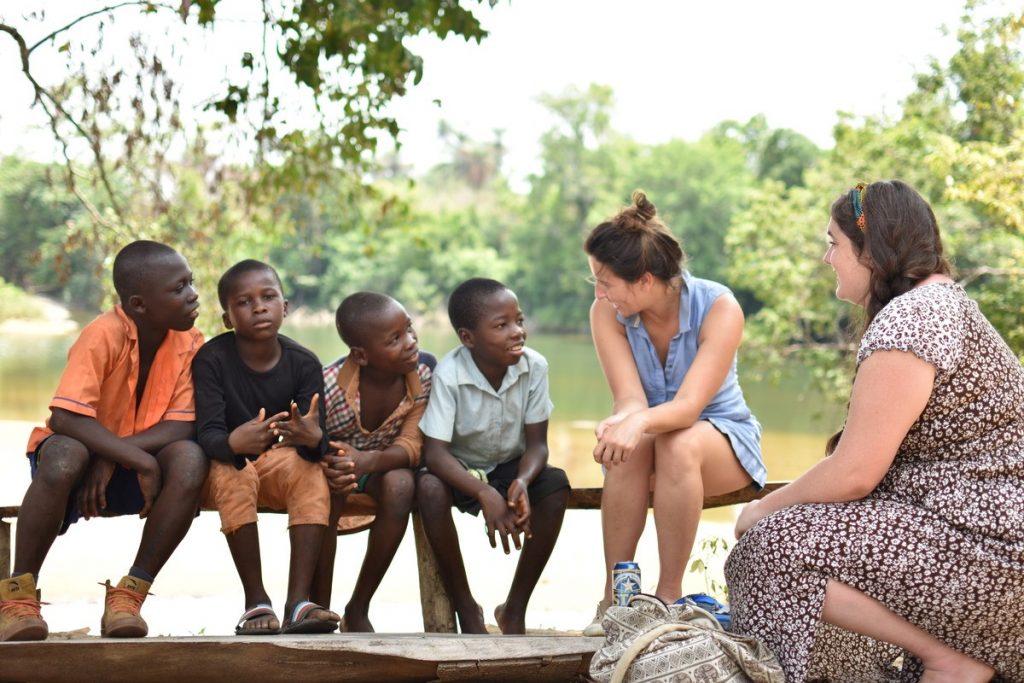
International runners meeting the children of Makeni town. © Michael Sheridan 2019
How successful was the marathon?
Luckily we had dry weather with a successful turnout of 700 runners and it went to plan on the day. However, the lead up was very busy with the organising of busses and drivers, as well as having the difficulty of trying to explain to the chefs what gluten free meant. The day before the race, many of the staff didn’t sleep for 36 hours, as the marathon course couldn’t be laid out too early. Funnily enough this was due to the kids in previous years turning around all the direction arrows. The course was set out in the middle of the night, with some hammers and sticks, which took them 5 hours to drive through the jungle and complete.
Following the controversy of having just one finish line time keeper in previous races, this year there were five people at the finish line with stop watches and pens writing down who finished in which position. It was amazing to see Usman Charlie win the race for his fifth time in a row. He had a hero’s welcome throughout the town, with people chasing him through the streets and press swarmed around him at the finish line. The award this year was for £100 which, in Sierra Leonne, is equivalent to a 3 months’ salary. The atmosphere once he crossed the line was incredible and I feel honoured to have been a part of it.
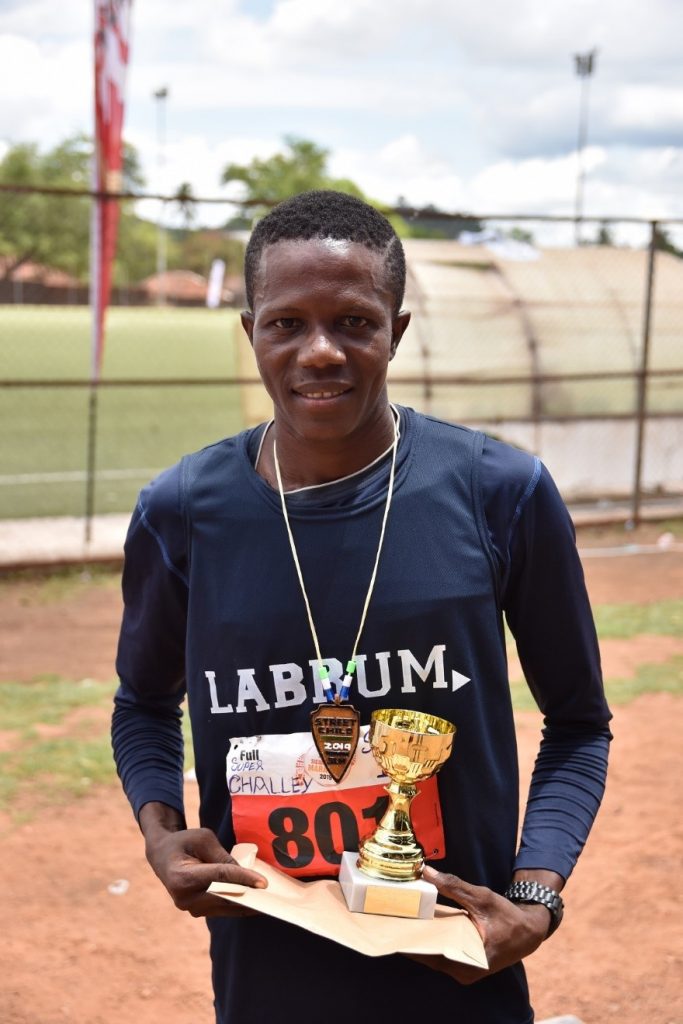
Marathon winner, Usman Charlie. © Michael Sheridan 2019
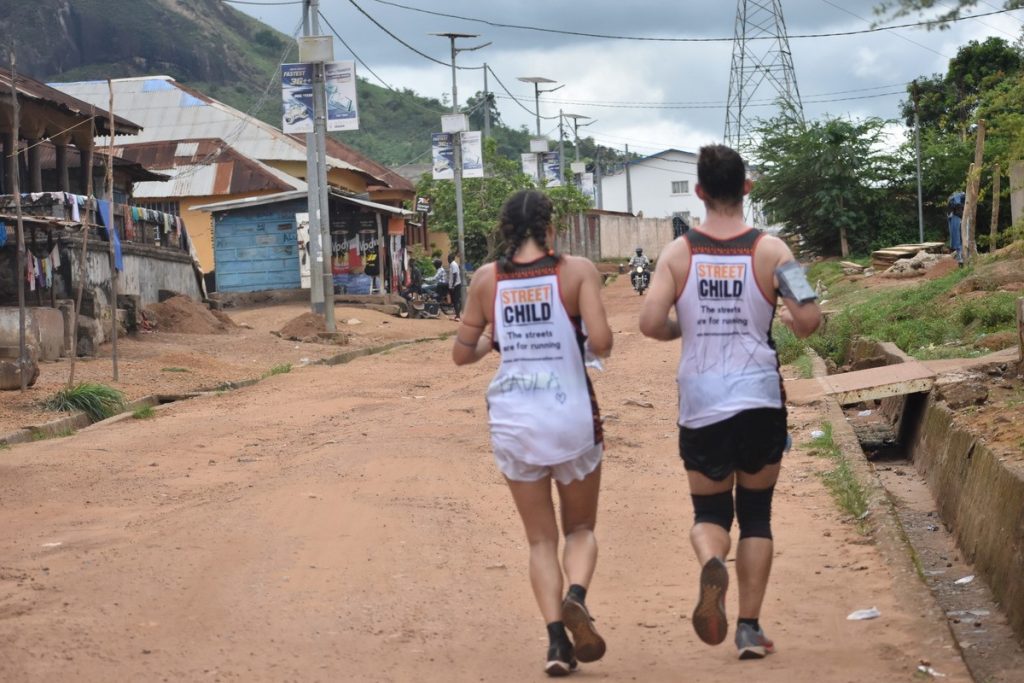
International runners on the Marathon course. © Michael Sheridan 2019
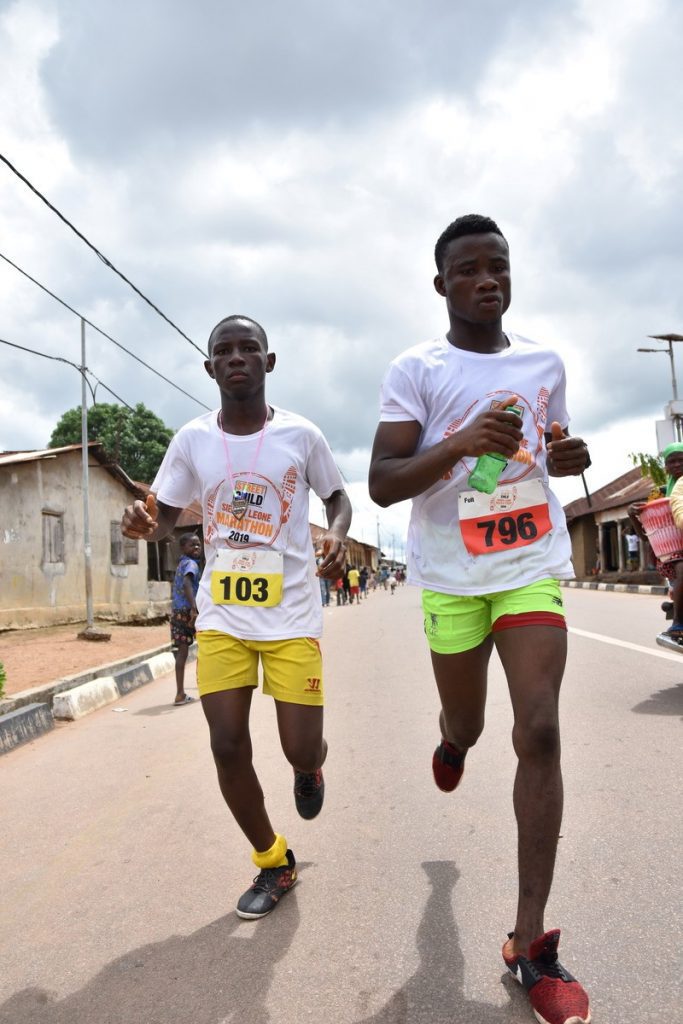
Local runners approaching the finish line. © Michael Sheridan 2019
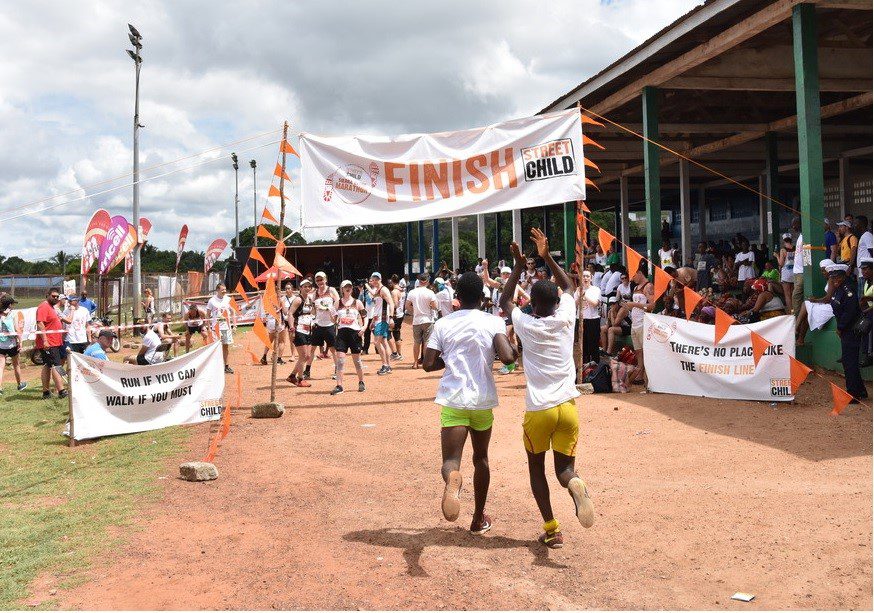
Local runners crossing the finish line to rapturous applause. © Michael Sheridan 2019
You mentioned previously your passion to combine photography with something more meaningful. Are there any particular favourite photos that you took? And why?
There were particular photos from the finish line itself, where there were such a wide range of emotions due to marathons pushing people beyond their mental and physical boundaries. Some people were also running in memory of people and others were those we had met and helped throughout the week. There was laughter, joy and tears at the finish line which certainly pulled on my emotional heartstrings.
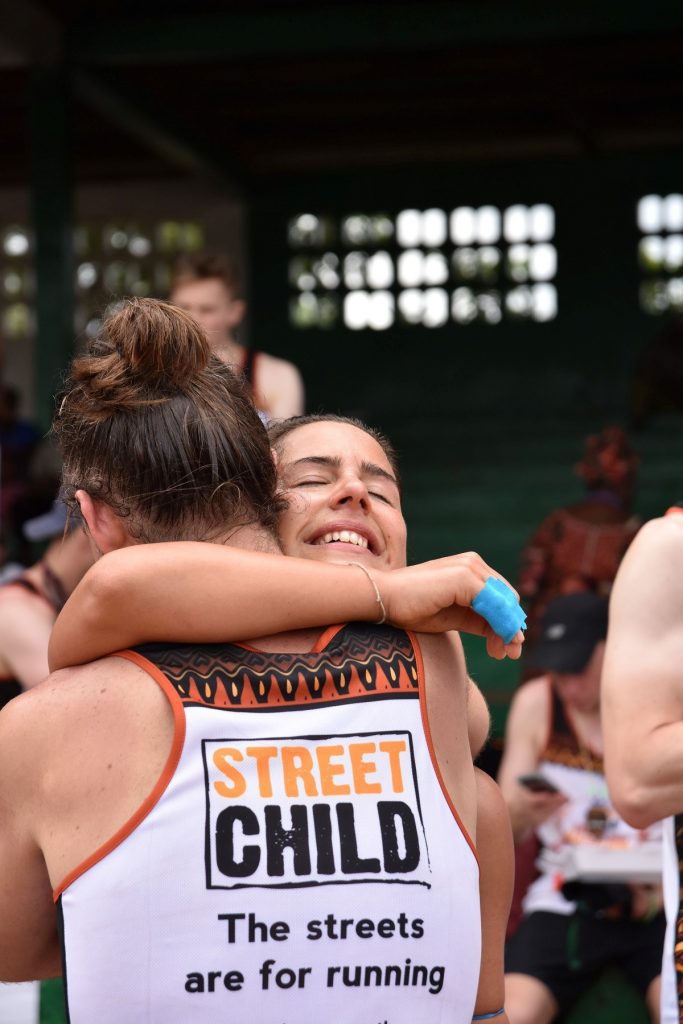
International runners celebrating finishing the Marathon. © Michael Sheridan 2019
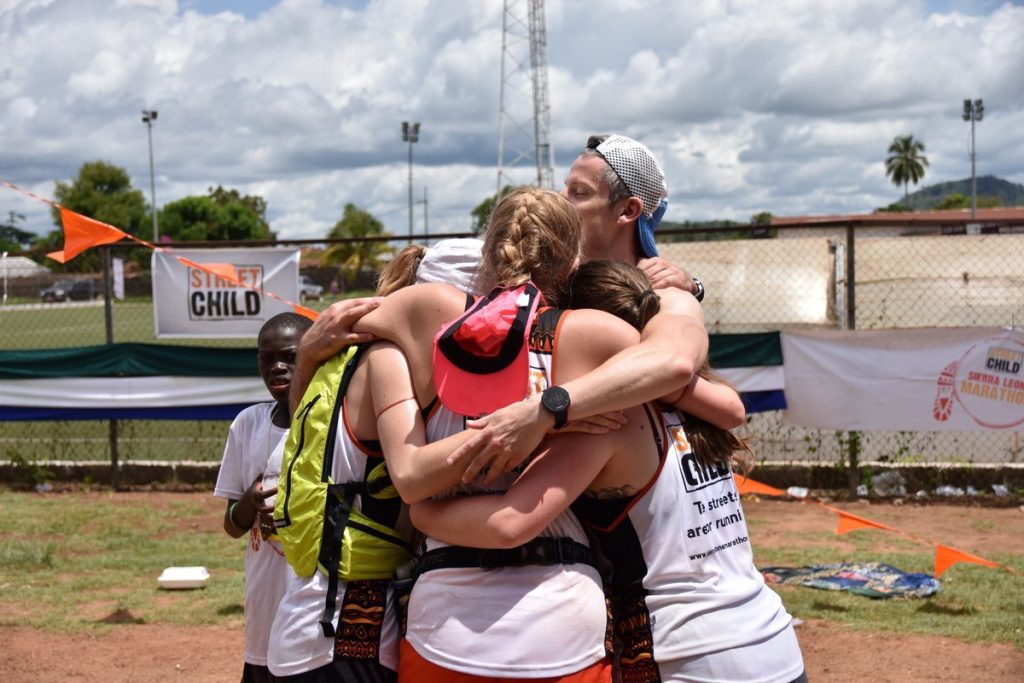
International runners celebrating finishing the Marathon. © Michael Sheridan 2019
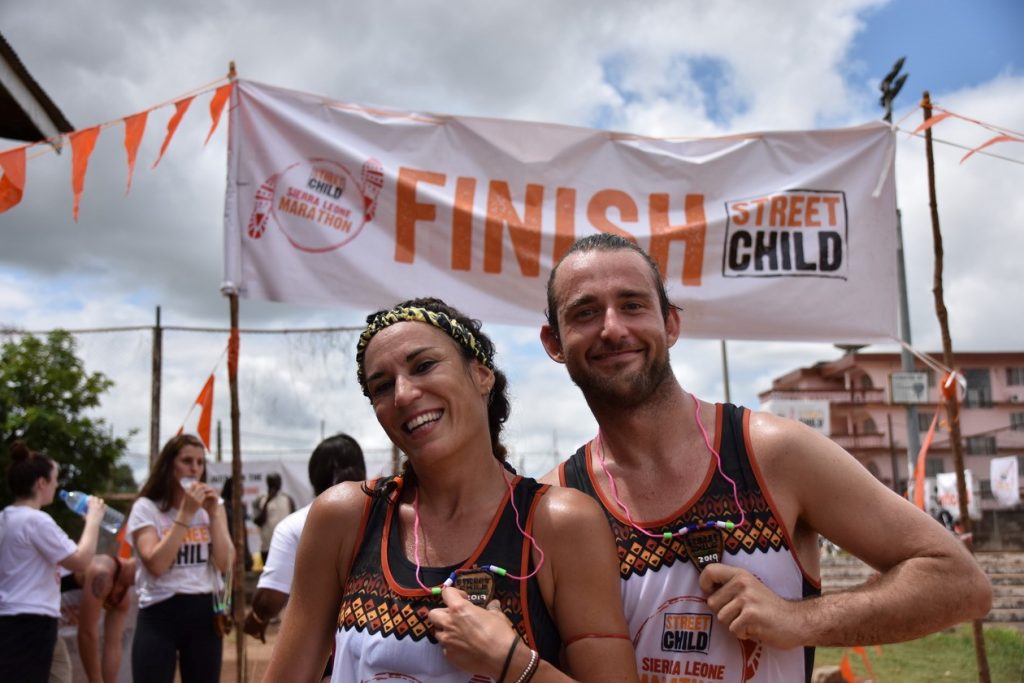
International runners celebrating finishing the Marathon. © Michael Sheridan 2019
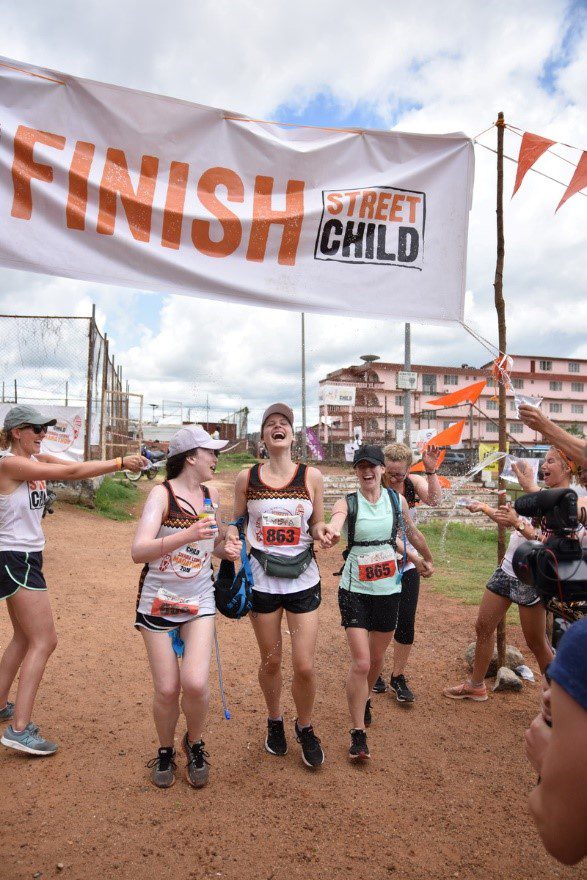
International runners celebrating finishing the Marathon. © Michael Sheridan 2019
Another favourite photo of mine was of a young girl laughing at a play, that the students from a school we visited, had put together a few days before the marathon, which effectively highlighted domestic life in Sierra Leone and the importance of staying in education. She was so engaged and seeing the joy on her face, encouraged me to take photos that showed people in a dignified and positive light rather than to show the difficulties that may be present in their home life.
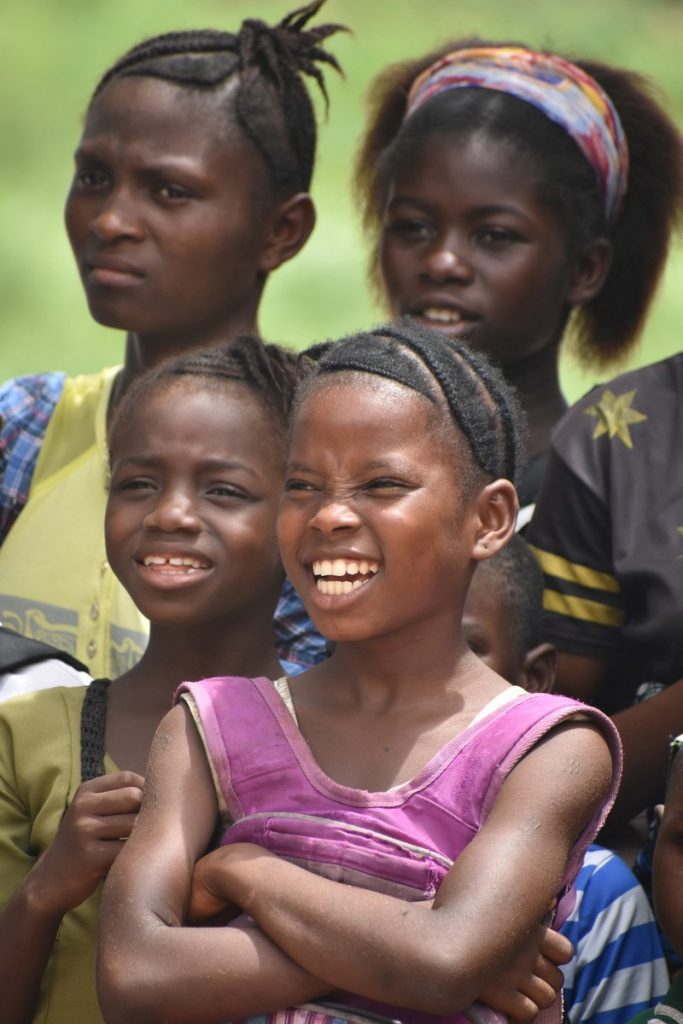
School girl enjoying the play her class mates put on. © Michael Sheridan 2019
How did Sierra Leone benefit from the money you raised?
The money that family, friends and Ayming donated to my fund raising page amounted to an amazing £3k which was raised to £5k through the UK Aid Match scheme run by the UK Government. This scheme supports charities whose work is seen to be the most effective and successful. I was really happy to hear that the £5k I raised is enough to help two rural communities gain their first ever school. Having visited a number of schools being supported by Street child, I saw first-hand that there were a number of extensions being built to reduce the class sizes. This means more teachers ensuring that each child gets as much focus on their learning as possible.
Instead of building the schools from scratch, Street Child’s primary aim is to support the existing infrastructure where teachers and students are familiar with their surroundings. I last heard that they had raised 170K from the marathon fund raising itself, which will only increase due to the UK Government’s Aid Match scheme. Street Child is one of the first charities to receive this funding four times, which highlights the success and effectiveness of their work.
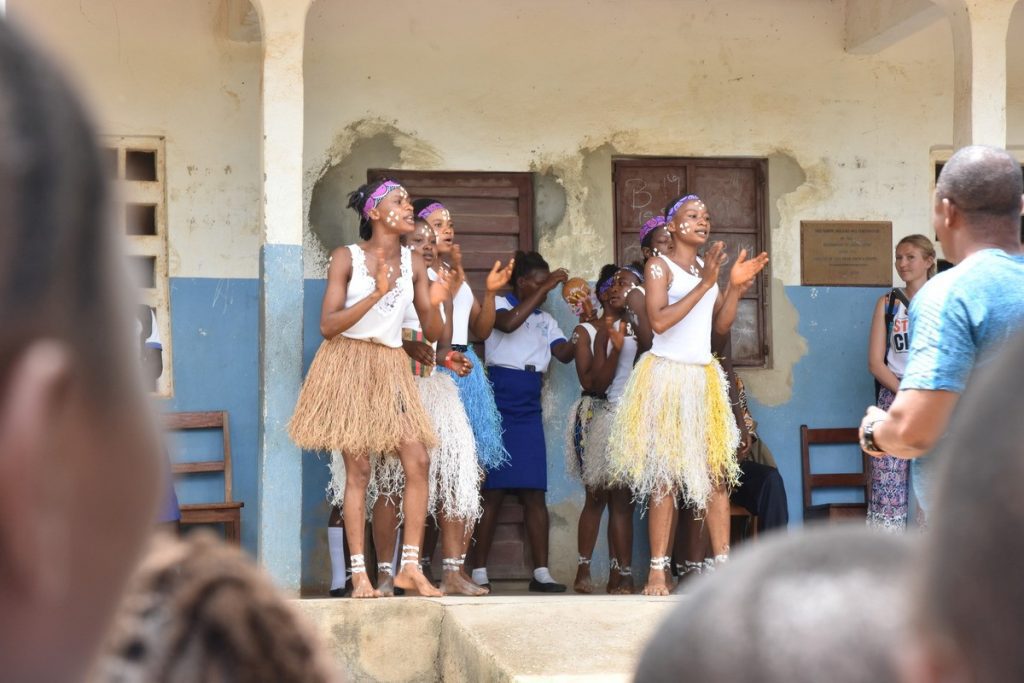
Traditional dance performed at a Street Child funded school. © Michael Sheridan 2019
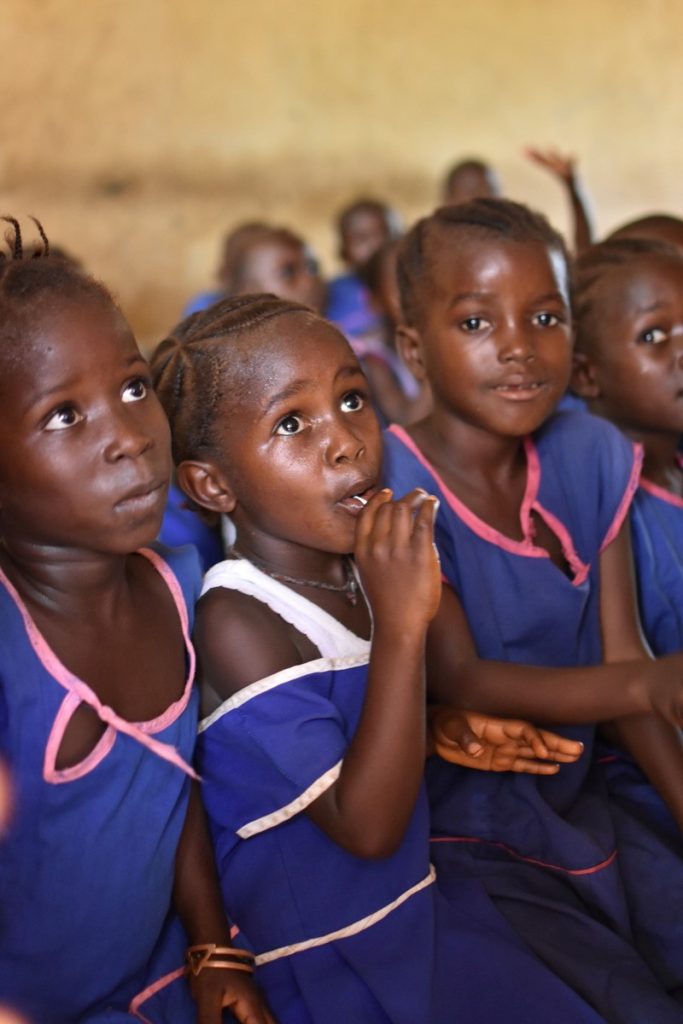
A Street Child school benefiting from increased staff and smaller class sizes. © Michael Sheridan 2019
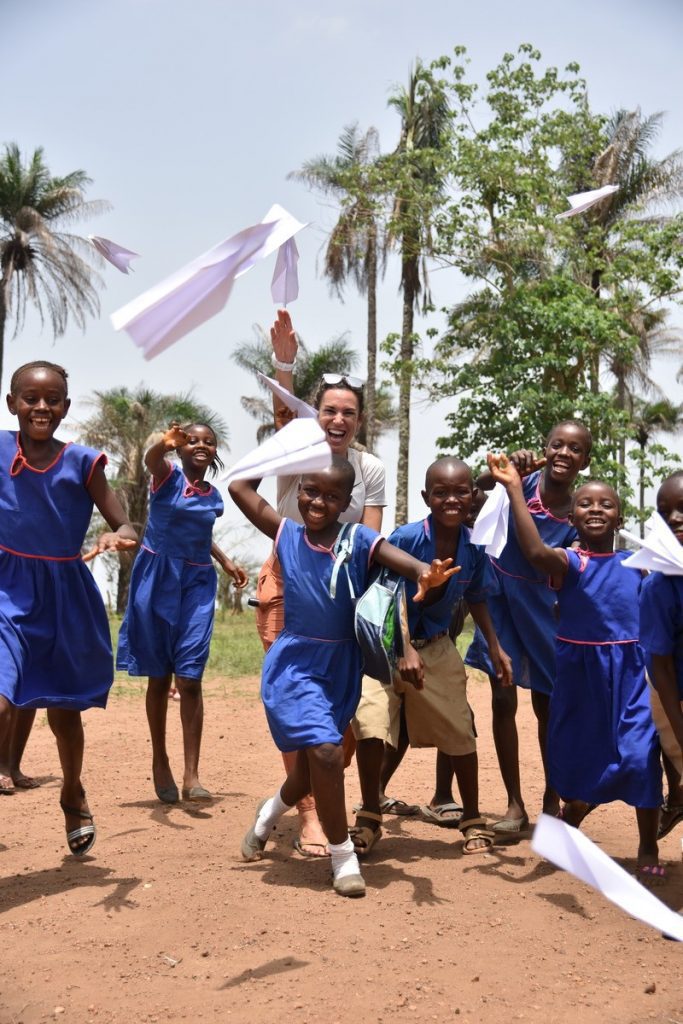
Throwing paper aeroplanes at a Street Child funded school. © Michael Sheridan 2019
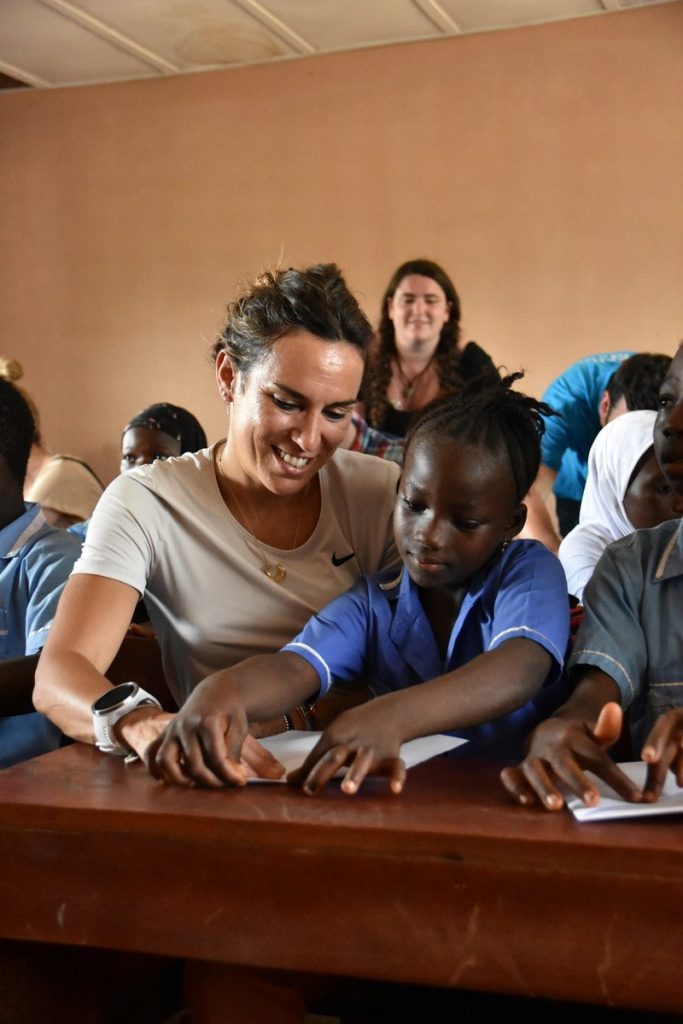
Kids teaching runners how to make a paper aeroplane! © Michael Sheridan
What was your key take away from the trip?
This trip to Sierra Leone has recalibrated for me how important it is to donate money and help charities wherever you can, either through raising or donating money or volunteering. Everybody knows charities are there to help people, but going and physically seeing the work and more importantly meeting the people, really brings this to the forefront of your mind. It’s a big source of satisfaction to see what a difference you can make, which does inspire me to do work like this time and time again.
Secondly, I left with a lasting impression that Sierra Leone is far more than a place for UK aid workers to visit, and is beautiful country full of great food, people and stunning wildlife and beaches. It is a country that has so much to offer tourists, which is debatably more important for the country’s development than just relying on foreign charities for help.
Being a photographer for a charity is a fantastic avenue through which to visit new places and I feel very fortunate to have these opportunities.

Smiling faces in Makeni food market. © Michael Sheridan 2019
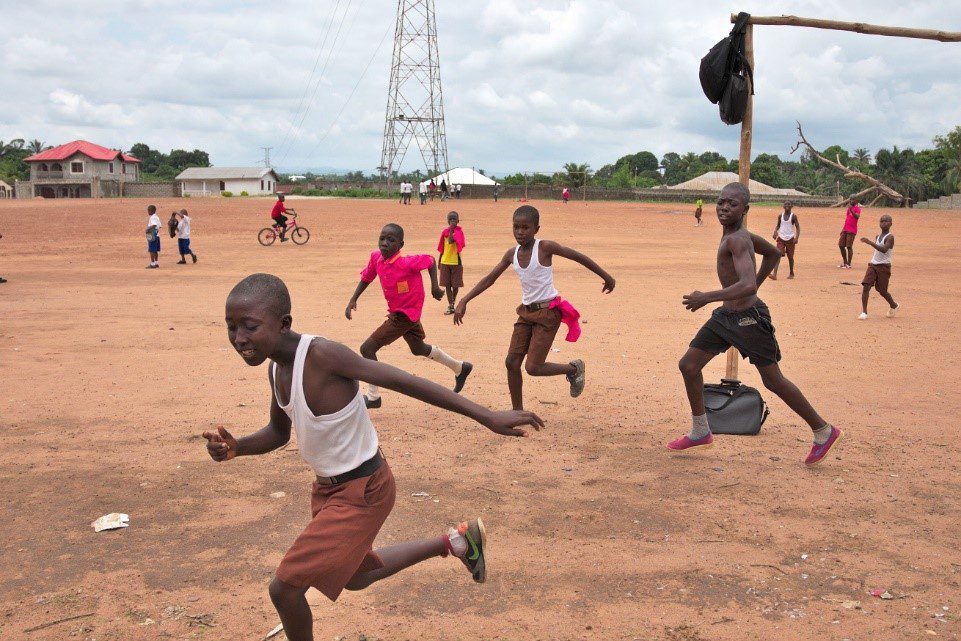
Kids playing football outside the Street Child offices in Makeni. © Michael Sheridan 2019
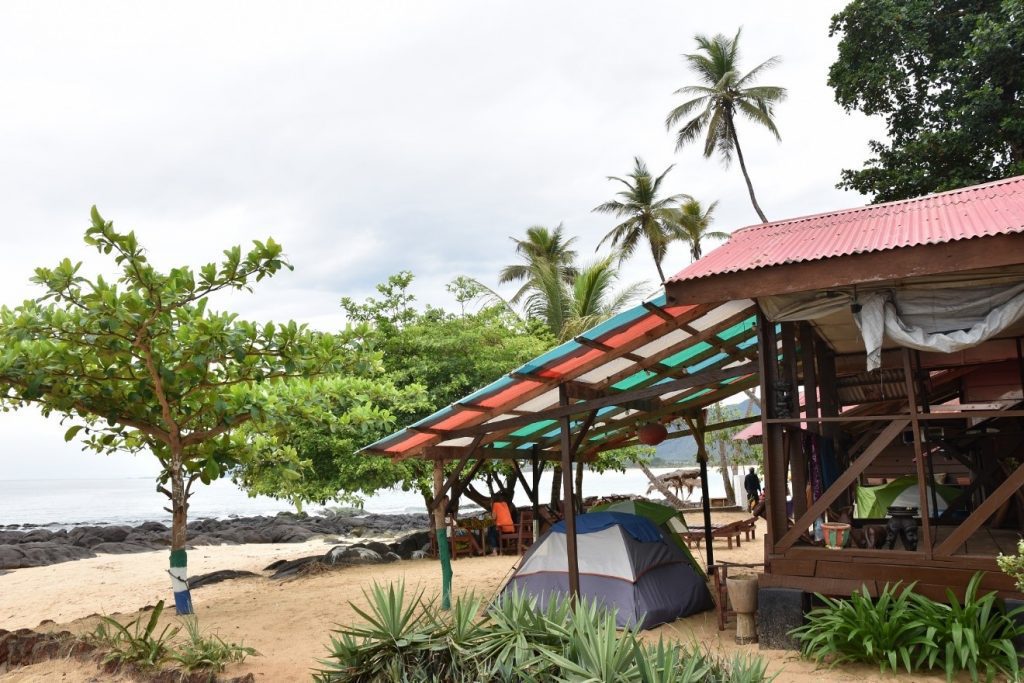
Idyllic Bureh beach. © Michael Sheridan 2019
Want to join the Ayming team?
We’d love to meet you at our next Ayming Job Date event taking place on 20 November in Shoreditch.
Ayming is proud to support and work with its employees in projects like Michael’s photography with Street Child. It’s important for us to help our staff grow and develop through this sort of social and charitable experience. Our #FurtherTogether approach to everything we do is a crucial part of how we attract and retain the brightest talent, and create a stimulating and enjoyable working environment.
- Learn more about Street Child’s work in Sierra Leone – https://www.street-child.co.uk/sierra-leone/



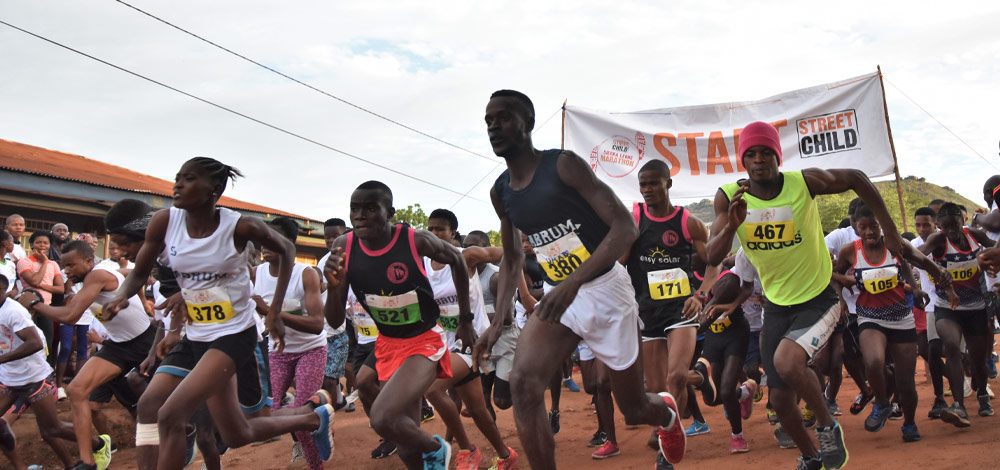
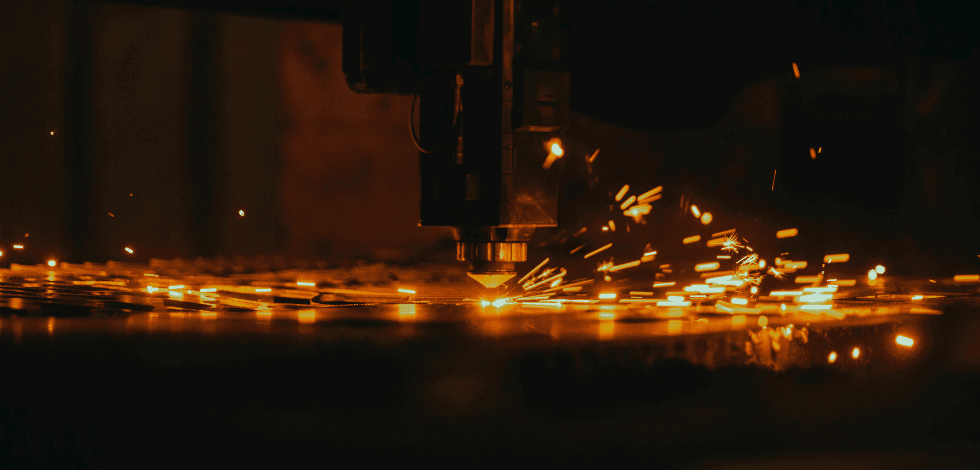



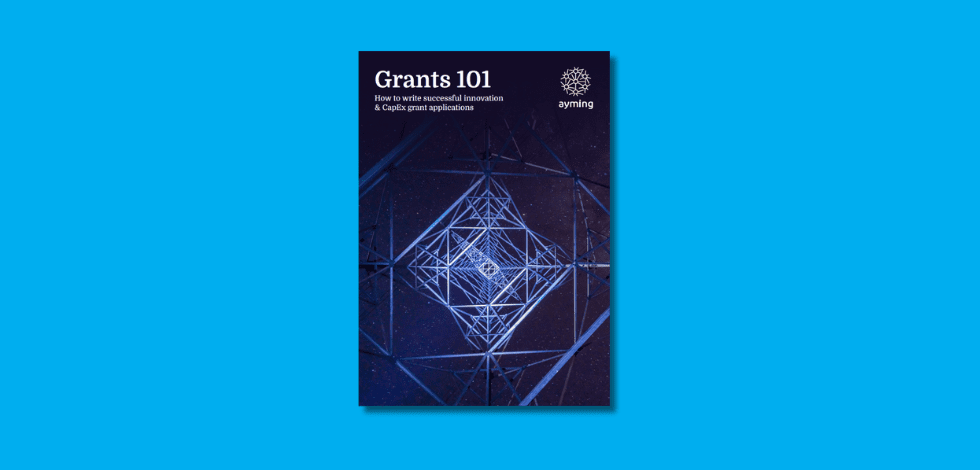
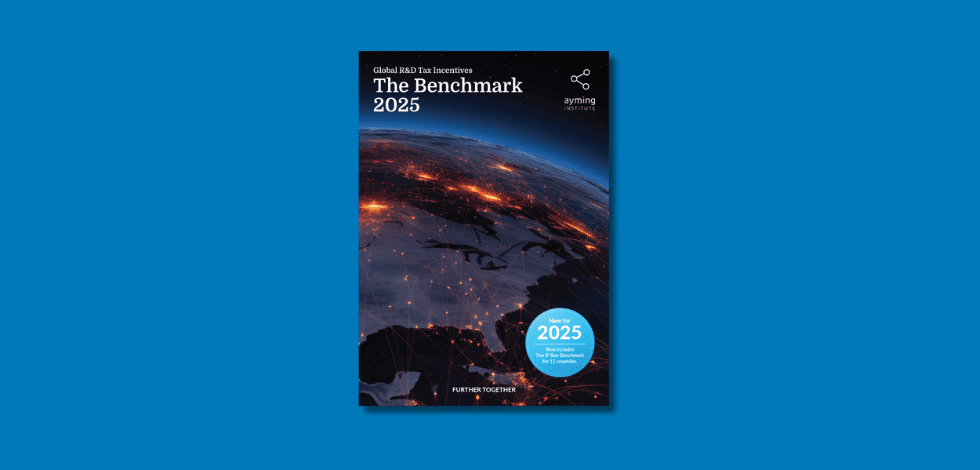
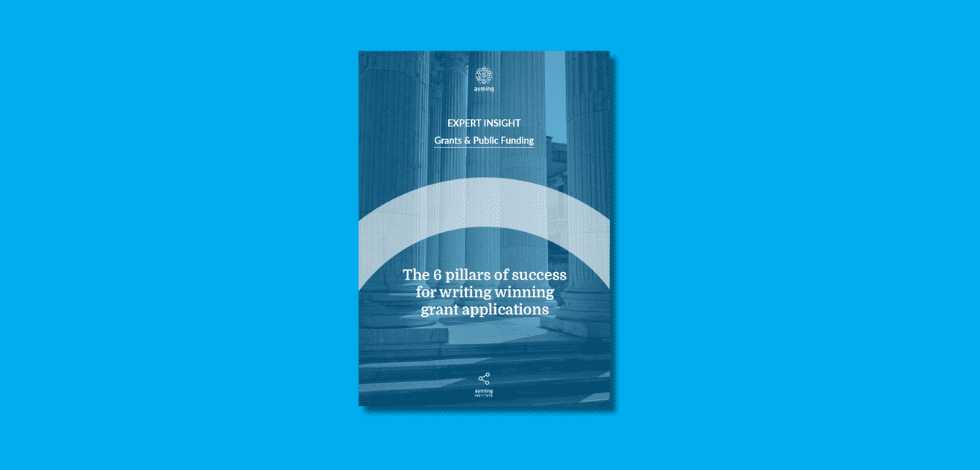


No Comments